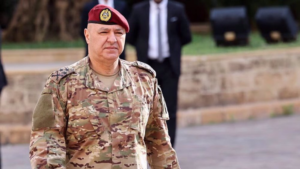Lebanese lawmakers have elected army chief Joseph Aoun as Lebanon’s new president, ending a two-year political deadlock in the crisis-ridden Arab country. The Lebanese parliament has elected army chief Joseph Aoun as head of state. The Lebanese parliament has chosen a person who has US support for the presidency. Lawmakers on Thursday chose Joseph Aoun after two rounds of voting in the small but very important Mediterranean country’s 128-member parliament, who is no relation to former President Michel Aoun, whose term ended two years ago and the country has been without a president for two years. The development is likely to increase Saudi influence in Lebanon, where Iran and Hezbollah had previously limited Riyadh’s role. Under Lebanon’s sectarian power-sharing formula, the presidency is reserved for a Maronite Christian. The position has been vacant since Michel Aoun’s term ended in October 2022 as the deeply divided 128-seat parliament Parliament could not agree on a candidate acceptable to all. According to Parliament Speaker Nabia Berri, Joseph Aoun received less than the required 86 votes in the first round, but managed to get 99 votes in the second round after receiving the support of lawmakers from Hezbollah and its Shiite ally, the Amal Movement.

Sixty-year-old President-elect Aoun is widely considered the favorite candidate of the United States and Saudi Arabia, on whose financial support Lebanon depends. It should be noted that wealthy Arab countries, including Saudi Arabia, have promised to rebuild areas affected by Israeli bombing in southern Lebanon. After his election as president on Thursday, Joseph Aoun officially retired from his military post, which he had served since 2017. In November 2024, the World Bank estimated the damage caused by the war at $8.5 billion. Saudi royal government sources said that French, Saudi and American ambassadors had told Hezbollah’s close ally Nabih Berri that aid from Saudi Arabia and other international financial institutions depended on Joseph Aoun’s election. Since October 2022, the Mediterranean country of Lebanon has been operating without a formal government, which has further complicated the financial crisis.


